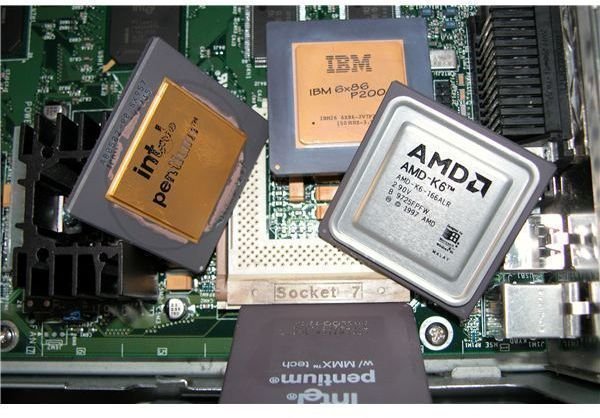The Ultimate CPU Shopping Guide
Introduction
Years ago, choosing a CPU was rather a simple decision. The products were streamlined and easy to compare. As the technologies behind processors have become more and more complex, so has the decision of buying the appropriate CPU.
Luckily, there are a few issues that greatly reduce the number of choices available to us. The most important thing to watch out for is the compatibility with the other components. A CPU will only fit in a specific type of socket, and a motherboard only supports a limited range of CPU frequencies. This guide will not only show you which processors are best, but how to treat the compatibility problem as well.
Troubleshooting Compatibility
If you are unsure what motherboard model you own, what kind of CPU socket it has, and which type of DDRAM it uses, simply follow these few steps to find out.
- You can find all this information in the motherboard manual. If you still have the physical copy of the manual that you received when you bought the motherboard, simply skip this section.
- Go to Start, All Programs (My Programs for Windows XP users), Accessories, Command Prompt.
- In the command line, type “dxdiag”. If you have never created a dxdiag report before, a dialog box will pop up. Simply click”OK” and wait for the diagnostic tool to finish its job. Under the “System” tab, look for the lines “System Manufacturer” and “System Model”. After that, go to the manufacturer website and download the instruction manual for your motherboard. You will find all the information you need to know in there.
The CPU has the most important role in a computer. Knowing how it works will help you understand the differences between various CPU models, specifications and architectures so that you will be able to make an educated choice about your new CPU.
The numbers above represent the amount of bytes used by processors to represent an integer number in memory. The bigger the number, the longer instruction sets that can be processed and more memory can be mapped and used, as CPUs use integer numbers to find their way around memory. The example above is a comparison between Windows 7 32-bit and Windows 7 64-bit. The differences between the two are valid for any operating system running on the respective CPU types (x32 CPU or x64)
The processor socket is the place where it is inserted on the motherboard. Compatibility between sockets and processors is quite straightforward for Intel products. A processor is designed for one specific socket and can only fit in that one socket. For AMD processors, things are a little more complicated, as some processors can fit in several sockets. Find out more on the matter from our complete guide for AMD sockets.
Can I Upgrade the Processor on a Laptop?
Planning to upgrade the processor in your laptop but not sure how to do it? Upgrading a laptop is a little more difficult than upgrading a desktop computer, but our guide will explain everything you need to know about changing a laptop’s CPU.
<strong>Intel Vs. AMD</strong>
Intel and AMD have been competing for several decades to create the fastest and most reliable processors and take over the market. If one would take the history of the two companies and compare them, he would quickly realize that both had periods of success and failure. Today, they come forth with a new generation of processors, with different architectures yet similar capabilities. Find out which one has the upper hand.
<strong>The Quad Race</strong>
On every discussion board about processors, you are guaranteed to find at least on topic about “Intel vs AMD”. In most of these topics, biased people share their biased opinions.
If you are a novice in this domain, the battle may not have a clear winner. However, our objective article will provide all the details you need to make an educated choice for your new processor.
The i5 is an awesome processor and a decent choice for those who can’t afford the more expensive models. Take a look at detailed analysis of its performance in gaming, 3D rendering, image editing and more.
The Core 2 Duo is probably the most successful line of processors released by Intel. However, Intel’s new line of processors, the i5, is slowly replacing the old Core 2 Duo. See the differences in technologies used for both, and how each measures up against the other.
Core i7 Performance References
A complete review of the Core i7 CPU, the most advanced series of processors released by Intel so far. Take a look at the new technologies used, performance benchmarks and more.
The Core i5 series is the slightly less powerful version of the Core i7. The two models use similar architectures and technologies. Find out the similarities and differences between the two, and see which one best fits your needs and budget.
AMD released the first series of hexa-core processors on the market with a clear mission: make the processing powerhouse of a hexa core available to everyone. Will they succeed? Or is Intel’s Core i7 the better choice?
Many computer enthusiasts will try, at least once, to overclock their processor. However, one should keep in mind that each processor reacts differently to overclocking. Some are designed to be overclocked to the limit, while others should stay at their standard settings. Find out which are the best processors when it comes to overclocking.
References
-
Image taken from wikimedia
